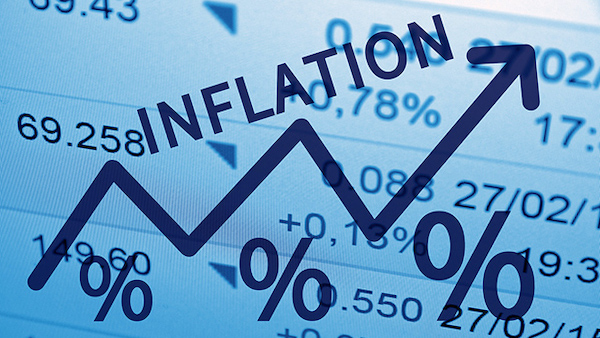Business
Inflation rate jumps to 2-year high of 12.40%

Nigeria’s inflation rate rose for the ninth consecutive month in May amidst increase in food and drug prices, the statistics office said on Wednesday as the coronavirus pandemic disrupted supply chains and economic activities.
The Consumer Price Index, which measures inflation, rose to 12.40% in May, its highest level in two years, 0.06% higher than the figure for April, which stood at 12.34%.
Inflation in Nigeria has defied the 9% upper limit of the central bank’s target band for five years and may be worsened as long as border closures, which were introduced last August to curb rice smuggling, are in force.
The National Bureau of Statistics (NBS) said increases were recorded month-on-month in the prices of pharmaceutical products, medical services, transport and associated services.
Food inflation, which constitutes the bulk of the inflation basket, leapt to 15.04% in May relative to the 15.03% posted the month before. Food inflation has been in double digits for over three years.
The rise in the food index was triggered by increase in the prices of bread and cereals, potatoes, yams and other tubers, oils and fats, fruits, fish and meat.
Read also: Nigeria’s inflation rate hits 2-year high of 12.34%
According to the NBS report, urban inflation rate jumped to 13.03% in May from 13.01% in April while rural inflation rate climbed to 11.83% up from 11.73% in the previous month.
The country has recorded over 17,000 coronavirus cases and 455 deaths with most infections reported in urban areas, which have been worst affected price increases, particularly imported drugs and foodstuffs.
Rocketing inflation has triggered negative yields on treasury bills and bonds thereby hindering the central bank’s efforts at attracting foreign inflows to shore up the Naira and boost the economy.
Africa’s largest economy faces enormous adversity from the virus outbreak and steep falls in oil prices, which have slowed growth.
Government expects the Gross Domestic Product to shrink by 8.9% in the worst-case scenario this year.
Godwin Emefiele, the apex bank’s chief, said the economy could contract in the second and third quarters of this year but rebound in the fourth quarter with the fiscal and monetary policy measures deployed by the authorities.
Join the conversation
Support Ripples Nigeria, hold up solutions journalism
Balanced, fearless journalism driven by data comes at huge financial costs.
As a media platform, we hold leadership accountable and will not trade the right to press freedom and free speech for a piece of cake.
If you like what we do, and are ready to uphold solutions journalism, kindly donate to the Ripples Nigeria cause.
Your support would help to ensure that citizens and institutions continue to have free access to credible and reliable information for societal development.
























